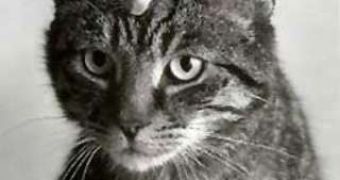It has now become clear that Jerry was a regular mouse-Casanova because of Tom. The scent of a cat may be the dread of any mouse, but it may also function like a sexual booster for these small rodents, as revealed by a new research published in the Journal of Ethology. The cat smell turns male mice into aggressive Don Juans, thus enabling them to get more females.
Many previous researches had shown that cat odor typically trigger panic in mice, making them flee; the same seemed to not hold true even for parasitized mice that displayed an altered behavior, being suicidally attracted by the smell.
The research team thought that stressing out the mice with the cat scent would have a crippling effect on their love life, as frightened mice have decreased levels of many hormones, including testosterone, which is not perceived well by females. In fact, the researchers wanted to see if a whiff of cat could keep mice at bay. Normal mice were exposed to cat urine for 8 weeks, but this continuous exposure did not have the expected effect: these male mice became even more aggressive than control males. They were more than twice as likely to combat with other mice, compared to individuals exposed to rabbit urine for a similar time interval.
Moreover, these males became more attractive to females. Ovulating females mice lingered more, sniffing the urine of the males exposed to cat urine for weeks, compared to those that had been exposed to rabbit urine.
For long, it has been generally thought that the presence of predators always impacts negatively on their prey, "but our findings show that presence of low or moderate predation may be positive to prey," said researcher Jian-Xu Zhang, a pheromone researcher at the Institute of Zoology of the Chinese Academy of Sciences in Beijing.
Perhaps the males turned aggressive because of the exposure to cat urine signaled to females they were fit enough to stand the constant menace of predators. "These findings could help improve life for animals in captivity. Zoos could enrich the environments of animals with just a whiff of their predators to stimulate them," Zhang concluded by saying.

 14 DAY TRIAL //
14 DAY TRIAL //